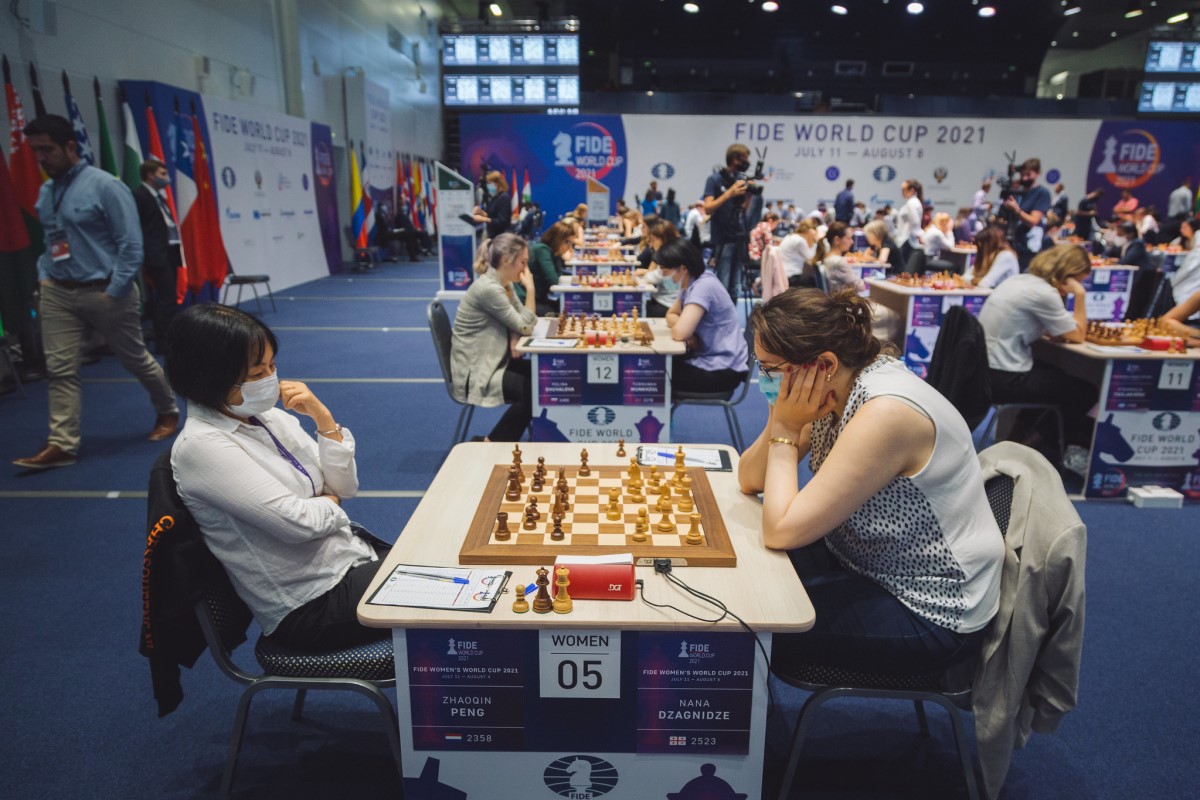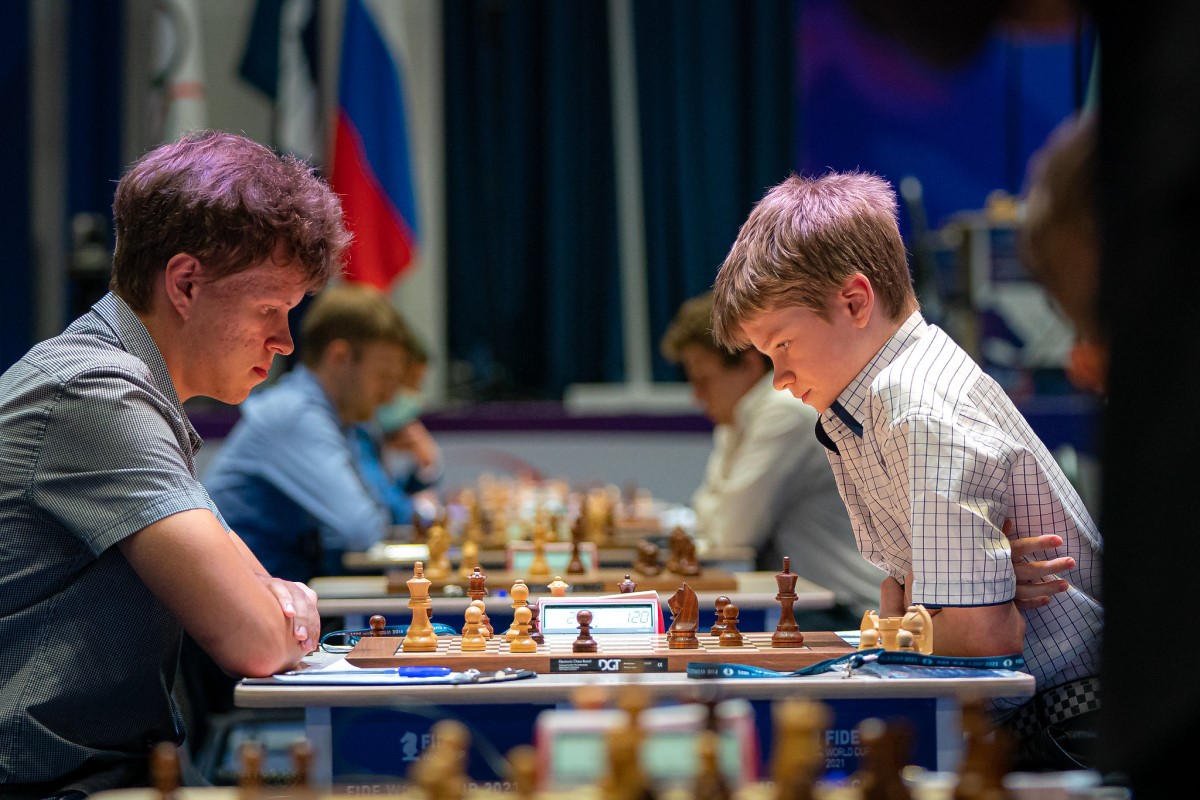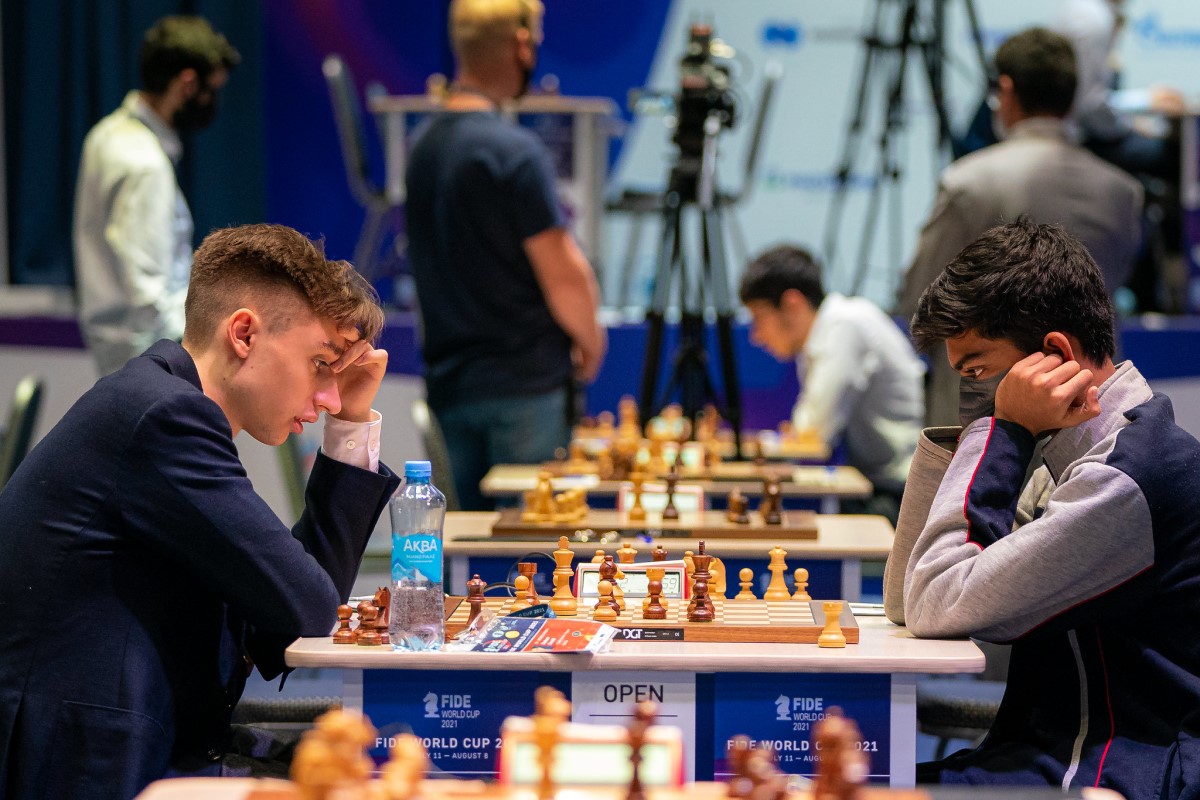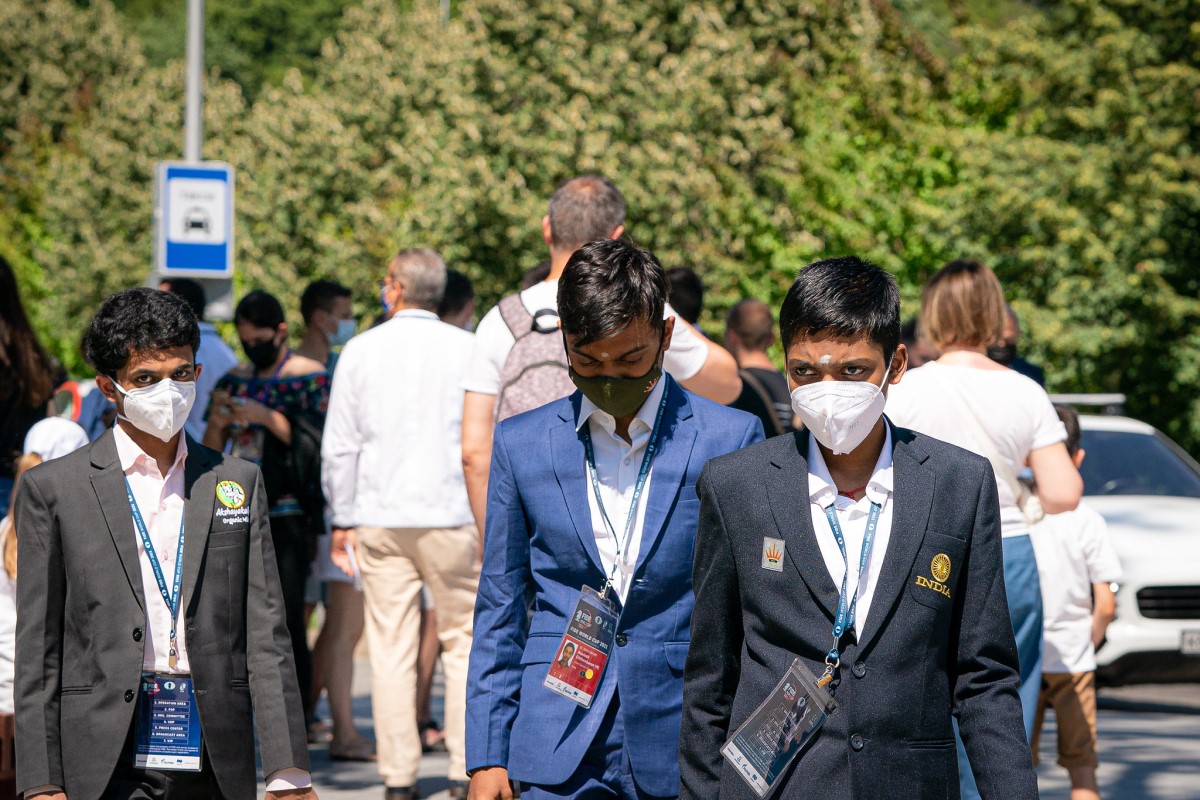The top seeds move on
Before the round started, it was announced, unfortunately, that Levon Aronian had decided to withdraw from the tournament, much like the Indonesian players who made their way to Sochi — i.e. Irene Sukandar, Medina Aulia and Susanto Megaranto. Megaranto had tested positive for Covid-19, much like his compatriot Mohamad Ervan, who did not even get to play the first round. Sukandar and Aulia, on the other hand, withdrew voluntarily.
 The Ruy Lopez is one of the oldest openings which continues to enjoy high popularity from club level to the absolute world top. In this video series, American super GM Fabiano Caruana, talking to IM Oliver Reeh, presents a complete repertoire for White.
The Ruy Lopez is one of the oldest openings which continues to enjoy high popularity from club level to the absolute world top. In this video series, American super GM Fabiano Caruana, talking to IM Oliver Reeh, presents a complete repertoire for White.
Due to Aronian’s withdrawal, Australian GM Bobby Cheng advanced to round 3. In the case of Megaranto, it was Fabiano Caruana who got a ticket to the next round, while in the women’s section Harika Dronavalli and Tan Zhongyi only played their first game in round 2 before advancing to the next stage of the event.

Bobby Cheng | Photo: Eric Rosen
The likes of Magnus Carlsen, Anish Giri and Alexander Grischuk will not need a playoff to reach the third round, as they swiftly eliminated their opponents in the classical section. Maxime Vachier-Lagrave also went through in style, with a remarkable win over Elshan Moradiabadi in game 2 — however, the Frenchman had suffered in the first game, with a draw being agreed when the engines evaluated the position as clearly superior for the American.
On Friday, Moradiabadi was already in deep trouble when a blunder prompted him to resign the game on move 22.
22...Rd7 gave way to 23.Nf6+ and Black resigned. After 23...Bxf6 24.Rxd7 Bxd7 25.Rxd7 Ne7 not only will White grab a pawn on b7, but he will also be left with the pair of bishops, a rook on the seventh and the more active pieces.
 Scarcely any world champion has managed to captivate chess lovers to the extent Carlsen has. The enormously talented Norwegian hasn't been systematically trained within the structures of a major chess-playing nation such as Russia, the Ukraine or China.
Scarcely any world champion has managed to captivate chess lovers to the extent Carlsen has. The enormously talented Norwegian hasn't been systematically trained within the structures of a major chess-playing nation such as Russia, the Ukraine or China.
Chess players can be celebrities too — Magnus Carlsen | Photo: Magnus Carlsen
Most of the strongest players in the women’s section also won their matches in the classical phase, including Aleksandra Goryachkina, Kateryna Lagno, both Muzychuk sisters and Alexandra Kosteniuk. In the case of eighth seed Zhansaya Abdumalik, her win in Friday’s round only served her to take the match to playoffs, as her (even) younger compatriot Bibisara Assaubayeva had beaten her in their first encounter.
Nana Dzagnidze, the fifth seed, beat Dutch GM Zhaoqin Peng twice to reach round 3. In game 2, the Dutch multiple national champion erred in a queen and knight endgame.
35...Qe4 allowed 36.Nf3+ and White attacks the vulnerable black king with the strong queen and knight duo. There followed 36...Qb1+ 37.Kh2 and the crucial 37...Qd8, cutting the king. Mate appeared on the board after 38...Qxb4 39.Ng5+ Kf6 — 40.Qh8#
This was one of four endgame positions from Friday analysed by GM Karsten Müller (see his section at the end of the article).

Zhaoqin Peng vs Nana Dzagnidze | Photo: Anastasiia Korolkova
A number of unexpected results were seen in the open section. Here we list the comebacks and upsets of the second round.
 The Winawer Variation in just 60 minutes - that can only work by reducing it to a clear repertoire for Black and, where possible, general recommendations rather than variations. Alexei Shirov was surprised at how quickly he managed to make of the French Winawer an opening he himself could play. And now he will let you share in his conclusions.
The Winawer Variation in just 60 minutes - that can only work by reducing it to a clear repertoire for Black and, where possible, general recommendations rather than variations. Alexei Shirov was surprised at how quickly he managed to make of the French Winawer an opening he himself could play. And now he will let you share in his conclusions.Comebacks (wins on demand):
- Ravi Haria (ENG) beat Etienne Bacrot (FRA)
- Jorge Cori (PER) beat Sandro Marece (ARG)
- Samuel Sevian (USA) beat Benjamin Bok (NED)
- Saleh Salem (UAE) beat Aleksandr Indjic (SER)
- Yaroslav Zherebukh (USA) beat Alexei Shirov (ESP)
- Ivan Cheparinov (BUL) beat Rasmus Svane (GER)
Upsets (50+ rating points difference):
- Kacper Piorun (POL, 2603) knocked out Markus Ragger (AUT, 2680)
- Pouya Idani (IRA, 2614) knocked out David Anton (ESP, 2673)
- Velimir Ivic (SER, 2581) knocked out Francisco Vallejo (ESP, 2710)
- Praggnanandhaa (IND, 2608) knocked out Gabriel Sargissian (ARM, 2682)
- Ante Brkic (CRO, 2592) knocked out Yuriy Kryvoruchko (UKR, 2699)
Only two comebacks — and no upsets — were seen in the women’s section, which currently has half as many participants compared to the open event (64 to 128).
- Nataliya Buksa (UKR) beat Carissa Yip (USA)
- Zhansaya Abdumalik (KAZ) beat Bibisara Assaubayeba (KAZ)

The all-Rusian matchup between Vladislav Artemiev and Volodar Murzin will be decided on Saturday | Photo: Eric Rosen
Endgame analyses
Besides Dzagnidze’s win shown above, endgame specialist Karsten Müller looked at three instructive positions from the open section. In the exciting match facing Daniil Dubov against 15-year-old Indian prodigy Gukesh, the Russian could have secured a spot in the next round had he found the right move in an ending with rook and knight against rook and bishop.
 In over 4 hours in front of the camera, Karsten Müller presents to you sensations from the world of endgames - partly reaching far beyond standard techniques and rules of thumb - and rounds off with some cases of with own examples.
In over 4 hours in front of the camera, Karsten Müller presents to you sensations from the world of endgames - partly reaching far beyond standard techniques and rules of thumb - and rounds off with some cases of with own examples.
Instead of 48.Nxh6, which led to a draw, Dubov had the powerful intermediate move 48.Rc6 and White will grab both of his opponent’s pawns quickly, since the black bishop has only a few squares to hide and needs to go to b4.
GM Müller explains why the zwischenzug was needed to win the above position, and also analyses endings in which good technique gave Magnus Carlsen and Radoslaw Wojtaszek full points on Friday.
Select an entry from the list to switch between games

Dubov vs Gukesh | Photo: Eric Rosen
Links




























